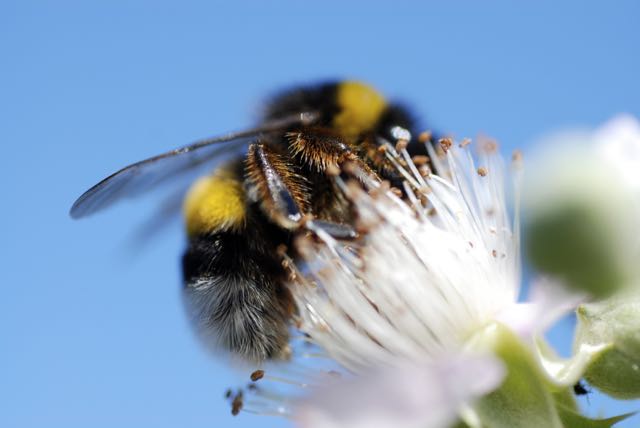A magazine where the digital world meets the real world.
On the web
- Home
- Browse by date
- Browse by topic
- Enter the maze
- Follow our blog
- Follow us on Twitter
- Resources for teachers
- Subscribe
In print
What is cs4fn?
- About us
- Contact us
- Partners
- Privacy and cookies
- Copyright and contributions
- Links to other fun sites
- Complete our questionnaire, give us feedback
Search:
Eco Warier Drone Bees
by Paul Curzon, Queen Mary University of London

Bees are dying in big numbers across the world, possibly because of all the pesticides farmers use. This is a big problem as they pollenate flowers including farmers crops. Without them we could struggle to grow enough food. Researchers in Japan are exploring whether tiny drone bees might help out.
Flowers need to be pollinated to create new seeds. They rely on insects to do this, carrying pollen from one plant to another. The pollen sticks to them as they collect sweet nectar from one flower and brushes off them when they visit the next one.
The Japanese team built tiny remote-controlled drones that are 4cm wide and weigh less than 5 sugar lumps. The bottom of the bee-drones are covered in sticky hairs that the pollen sticks to just as it does with the bees. They can then carry the pollen to another flower.
The next step is to turn the drones into robot bees that can identify flowers themselves and have artificial intelligence brains to navigate from one to another.
A future walk in the countryside could be full of the sound of the buzzing of artificial bees in the fields and meadows. Whether this is a good way to deal with the decline of bees is a moot point of course. It would be better to find out exactly why they are dying and stop it happening. Computer Science can of course help there too, but that is another story.


